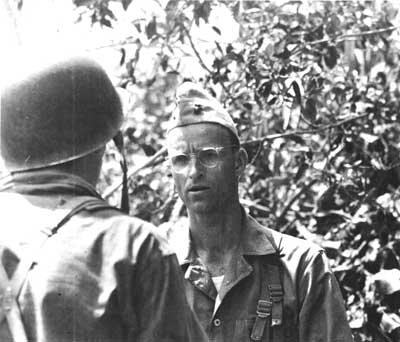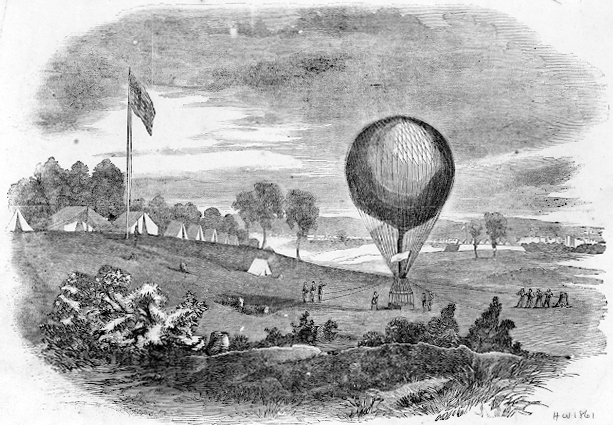
RANDOLPH CHURCHILL, son of the Britain’s legendary prime minister, could easily have opted out of dangerous wartime duty by using his top drawer family connections, but he didn’t. In fact the 28-year-old Churchill, would go on to serve with the 4th Queen’s Own Hussars and then with the SAS in North Africa. Later in the war, Churchill along with noted author Evelyn Waugh narrowly averted capture after parachuting into Eastern Europe to establish a military and diplomatic mission in Tito’s Yugoslavia. [1]
Randolph Churchill wasn’t the only relative of a wartime leader to make a name for take part in the action. Brothers, nephews and even sons of some of the war’s most influential figures managed to carve out their own niches in the pages of history. Let’s meet a few of them.

Those Roosevelt Boys
Like Churchill’s son, President Franklin Roosevelt’s four boys went to war as well. The eldest, James, didn’t let his flat feet keep him from a successful military career. After serving as a reservist in the pre-war years, at 34 James enlisted in the Marines following the Japanese attack on Pearl Harbor and eventually rose to second-in-command of the 2nd Raider Battalion, an amphibious commando outfit. In August 1942, his unit took took part in a famous attack on Japanese-held Makin Island in support of the operations on Guadalcanal. He won the Navy Cross for his exploits. [2] In 1940, the second Roosevelt son, Elliot joined the United States Army Air Force at the age of 30. When America entered the war the following year, he too volunteered for action. During the course of the war, Elliot flew 300 combat missions and earned himself the Distinguished Flying Cross. [3] A pilot of a P-38 Lockheed Lighting, he eventually went on to command a number of combat and reconnaissance squadrons. The third Roosevelt son, Franklin Jr., was actually a Canadian citizen, born in 1914 while his parents were vacationing in New Brunswick. Franklin the younger served in the U.S. Navy during the war as did the youngest of the Roosevelt boys, John Aspinwall, who gave up his job in a Boston department store to head off to sea. [4]
Yakov Djugashvili
Joseph Stalin had very little contact with his son Yakov Djugashvili, a Red Army artillery officer. In the early weeks of Operation Barbarossa, the invasion of the Soviet Union, the 34-year-old was captured by the Nazis. Djugashvili was famously estranged from his powerful father prior to the war; the relationship didn’t improve after his capture. Following the German defeat at Stalingrad, Stalin reportedly refused back channel offers from Berlin to exchange the Djugashvili for the Wehrmacht commander Friedrich von Paulus. “I won’t trade a field marshal for a lieutenant,” Stalin reportedly said of the proposal.[5] The Germans supposedly also offered to return Djugashvili for Hitler’s own nephew Leo Raubal, who was also taken prisoner by the Red Army at Stalingrad. The Soviet despot refused and Djugashvili died in German captivity in 1943. Reports differ on his fate: some suggest he perished while trying to escape. Others suspect it was suicide. Another source indicates he was killed for disobeying a camp guard. [6]
Albert Goering, Brother of Hermann
The younger brother of Nazi kingpin Hermann Goering, Albert, was anything but a devoted follower of Hitler. A successful businessman, factory owner and noted playboy, Albert was actually a secret opponent of Nazism. Tales abound of his various acts of defiance against the Third Reich and in particular its persecution of the Jews. Goering once reportedly joined a Jewish work detail forced to clean the streets of Berlin as a form of protest against their mistreatment and then used his notorious bother’s credentials within the regime to escape retribution. [7] Albert also leveraged his influence to free prominent Jews from the clutches of the SS, sometimes even forging the reichsmarschall’s signature to have concentration camp inmates trucked to his factories, after which they would be secretly released.[8] Later, when appointed the director of a German-owned manufacturing plant in Eastern Europe, Albert did as much as he could to disrupt production, even going so far as to coordinate acts of sabotage with local resistance agents. [9] He continually survived his brushes with Nazi authorities by invoking the family name. Albert lived through the war, but ironically became a social pariah due to his last name’s indelible association with National Socialism. Generous to the last, Albert married his own housekeeper on his deathbed so that she would receive his pension. [10] It wasn’t until after his death that Albert’s anti-Nazi exploits became widely known.
Hans Himmler
Not all of the rebellious relatives of the Third Reich’s leaders escaped from the war unscathed. SS chief Heinrich Himmler’s own nephew Hans had an officers commission in the SS… as well as a big mouth. He was arrested, demoted and even sentenced to death for repeatedly getting drunk and spilling state secrets. By virtue of his last name, young Himmler got off, but was transferred to the front lines instead. Unable to contain his growing distaste for his uncle and the Nazi regime, Hans was again arrested and this time shipped off to the concentration camp at Dachau. He was eventually put to death there for the “crime” of homosexuality. [11]

Meet the Hitlers
Ironically, the half brother of the Fuehrer managed to stay out of harm’s way during the war. Alois Hitler was older than his infamous brother by seven years but had little contact with his younger sibling. In 1934, Alois opened a bistro in Berlin that stayed in business for much of the war. Nazi officers frequented the establishment, but history records the restauranteur as being largely indifferent to the the regime. He was briefly arrested following the war and investigated by the Allies for possible involvement in the Third Reich but soon released when it was determined that he had nothing to do with his brother’s many atrocities. [12] The same cannot be said for Alois’ son and Hitler’s nephew William. Born in 1911 and raised in Liverpool by Alois’ estranged Irish wife, William Hitler moved to Germany when the Nazis took power in 1933 to live off the family name. The dictator even pulled strings to find him work, but William soon lost interest and drifted from job to job in the 1930s, continually seeking hand outs from his powerful uncle. The shiftless William was eventually forced to flee Germany after threatening to expose some of the Hitler family’s dirt (such as alleged Jewish ancestry). He relocated to the United States and became a minor celebrity often speaking publically about his famous uncle. In 1944, Hitler enlisted in the U.S. Navy where he served as a corpsman. He was discharged in 1947. After the war, William changed his last name Stuart Huston, married and had four children. He died in 1987. Three of his sons are still alive today. The New York Times even wrote a story about them in 2006. Alois Hitler Jr. had another son with his second wife in 1920. Heinrich Hitler, born in 1920 and raised in Germany, was a loyal Nazi and NCO in the Wehrmacht. [13] He was captured on the Eastern Front in 1942 while serving in a Germany artillery unit and died in captivity.
(Originally published on Aug. 27, 2012)
___________________________________________
If you’d like to receive alerts about the latest articles and posts, click on the link in the upper right margin marked “FOLLOW THIS BLOG”. And don’t forget to follow us on Twitter.
SOURCES
1. http://en.wikipedia.org/wiki/Randolph_Churchill
2. http://unusualhistoricals.blogspot.ca/2011/08/children-of-fdr.html
3. Ibid
4. Ibid
5. http://rt.com/news/prime-time/stalin-son-death-declassified-935/
6. Ibid
7. http://en.wikipedia.org/wiki/Albert_G%C3%B6ring
8. Ibid
9. Ibid
10. Ibid
11. http://forum.axishistory.com/viewtopic.php?f=38&t=115246&start=15
12. http://en.wikipedia.org/wiki/Alois_Hitler,_Jr.
13. http://en.wikipedia.org/wiki/Heinz_Hitler









